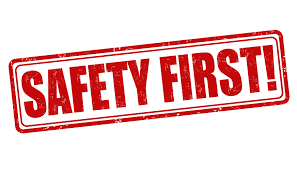 Safety and disaster planning has become the most important aspect in the planning and hosting of any type of event, writes Mike Lord.
Safety and disaster planning has become the most important aspect in the planning and hosting of any type of event, writes Mike Lord.
Nowadays clients are engaging with health and safety specialists far earlier in the event cycle. This ensures that the decisions they make around their event has been assessed for risk, not only liability but also financial and reputational risk prior to appointing venues and suppliers.
UNDERSTANDING THE LAW
You cannot understate the importance of the liabilities associated with hosting an event, no matter the size and complexity. The events and meetings industry transcends so many laws and regulations that it is extremely exposed.
Training your staff and empowering yourself by understanding the pitfalls of legislation affecting the events industry is paramount.
The advent of the Sports and Recreational Events Act in 2010 (Events Act) has forced the industry to stand up and take responsibility for its actions. You can no longer hide behind budgets and the “that is how it is has always been done” excuse. The events industry is no longer working in a bubble and has been forced to be accountable collectively for an event. This has in my mind improved communication and information flow and made the industry sit up and take its liability exposure seriously.
DOWNLOAD: 8 WAYS TO ENSURE YOU HAVE THE EVENTS ACT COVERED
CALL IN THE EXPERTS
Having an experienced consultant to walk you through these liabilities and assess the risks you may face, allows for you to make informed decisions, which may in the short term increase the financial burden to the project, but in the long term, duty of care is the cornerstone to responsible and accountable event management.
Having a safety system to protect your business is critical, it is okay to have good practises on the ground, it is another thing to document this and have it engrained in your business. Safety needs to become front of mind, we have no choice, it needs to be engrained in the way we do business.
ASSESSMENT OF RISK
One key mechanism is understanding the assessment of risk associated with your event. By determining the overall risk and those that need to be targeted, you are able to put in control measures to ensure safe practises.
A perfect example is weather. You cannot stop doing outdoor events because of lightning or heavy winds, but what you can do is plan your events correctly and have measures in place to counteract or minimise the risk from inclement weather. Have systems in place to avoid a disaster.
Targeted risk assessments are vital to drilling down into each risky activity or action you may be producing, and allow you to continue with what you are trying to achieve. Having rational thoughts and motivations in place allow you to put together spectacular and impressive events that you are still in control of. This is responsible event management.
Another key mechanism is contractor management. You are responsible for those that work on your sites and produce elements for your events. It is therefore imperative that you have an oversight process in place, protecting yourself from the work being carried out. Have a good compliance system in place to ensure your contractors are compliant on all aspects of health and safety. Audit their paperwork and their systems, monitor the work they do on-site, and correct or remedy any bad habits.
MORE ENGAGEMENT
Our industry needs more engagement; we need to be bringing things out into the open. We need to continually talk to those on councils and in the police service on what we do for a living. We need to get our friends that are accountable for safety in the public services to embrace the passion of our events industry, because then they can appreciate what we are trying to achieve, assist us in making our ideas a reality, and work with us to implement rational and thought-through plans to minimise risks.
Safety can never be understated, neither can it dominate the agenda. It is just vitally important that you understand your liabilities and that you have plans in place to protect them. The unforeseen is sometimes going to happen; your planning will determine how effectively you deal with it.
Mike Lord has over 18 years’ experience in venue management, event production, event safety and the exhibition industry.




